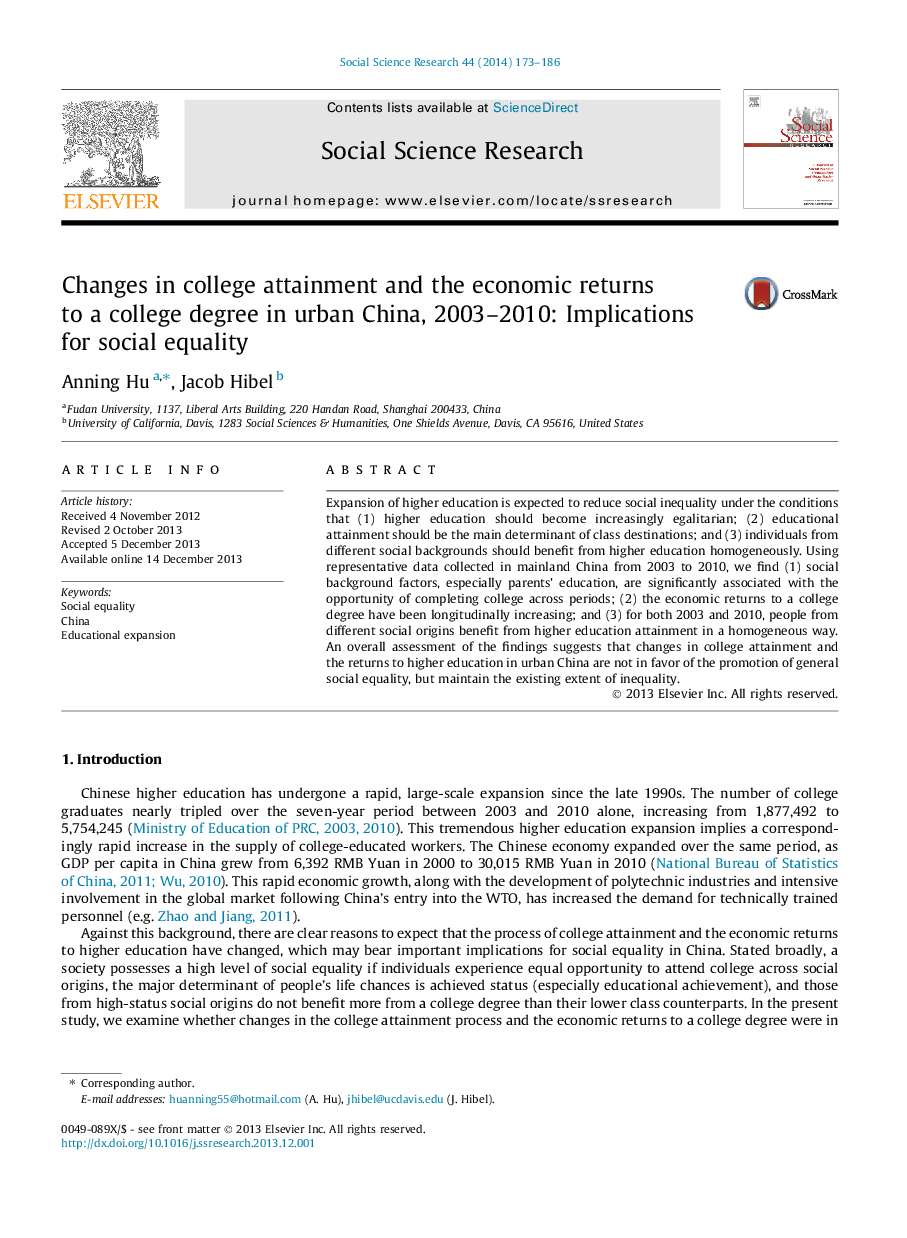| Article ID | Journal | Published Year | Pages | File Type |
|---|---|---|---|---|
| 7339439 | Social Science Research | 2014 | 14 Pages |
Abstract
Expansion of higher education is expected to reduce social inequality under the conditions that (1) higher education should become increasingly egalitarian; (2) educational attainment should be the main determinant of class destinations; and (3) individuals from different social backgrounds should benefit from higher education homogeneously. Using representative data collected in mainland China from 2003 to 2010, we find (1) social background factors, especially parents' education, are significantly associated with the opportunity of completing college across periods; (2) the economic returns to a college degree have been longitudinally increasing; and (3) for both 2003 and 2010, people from different social origins benefit from higher education attainment in a homogeneous way. An overall assessment of the findings suggests that changes in college attainment and the returns to higher education in urban China are not in favor of the promotion of general social equality, but maintain the existing extent of inequality.
Keywords
Related Topics
Social Sciences and Humanities
Psychology
Social Psychology
Authors
Anning Hu, Jacob Hibel,
